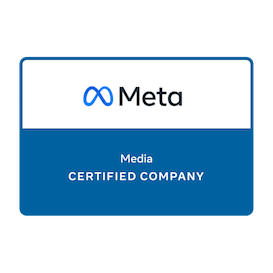Google Analytics UA to G4 Conversion
In March of 2022, Google made the announcement that Google Analytics 4 (GA4) will be replacing Universal Analytics (UA) in the summer of 2023. With the deadline quickly approaching, many Analytics users are looking to convert their data while simultaneously trying to grasp the Google Analytics 4 platform and what it has to offer. So what are some of the key differences to note before switching your company’s data over to Google Analytics 4? Continue reading to find out!
A More User-Friendly Property
A significant update to Google Analytics through GA4 is its App+Web property. With the UA platform, users had to toggle between different properties to monitor app data and compare it to their website data. The new App+Web property makes tracking app and website visits significantly easier, since they both appear on the same property.
Phasing Out Cookies
Universal Analytics thrived on cookies to track actions taken by users during their session on a company’s website. Cookies also allowed UA to distinguish the difference between new and returning users. While GA4 will still incorporate cookies in its tracking, the primary source of tracking will come from an “Event-based Data Model”. This signifies a switch in the world of data tracking to be more privacy-focused and oriented.
The Event-Based Data Model
Any data that was previously classified as a “Hit” in UA is now defined as an “Event” under the GA4 software’s event-based data model. Events are separated into four different categories. The first two are Automatically Collected and Enhanced Measurement events, which GA4 tracks without the user providing any additional code. Automatically Collected events include elements such as language, ad_click, and page_title. On the other hand, Enhanced Measurement events track valuable data that users previously had to add in UA such as pageviews, outbound clicks, and scrolls. The next category of events is defined as Recommended events. These are events suggested by Google for your specific business type. For a retail-based site, Google may recommend events such as add_to_cart or begin_checkout. The final event category is Custom events, which requires the user to write code to be used in Google Tag Manager.
The Loss of Bounce Rate
While GA4 touts three new metrics (engaged sessions, average engagement time, and engagement rate), this also means the loss of metrics such as bounce rate. The bounce rate metric calculated the percentage of users who left the company’s website without triggering a single hit. This allowed companies to rethink the set-up of their landing pages to make them more captivating to visitors. With the removal of this metric, website designers are left to use their own judgment.
While Google Analytics 4 has been released to the general public, Google is still tweaking the software. For instance, GA4 does not include the option to toggle between views, however, others believe that this could be subject to change. Using GA4 will take some getting used to, but once familiarized, you and your company will be able to track data more thoroughly and efficiently than with Universal Analytics.
















